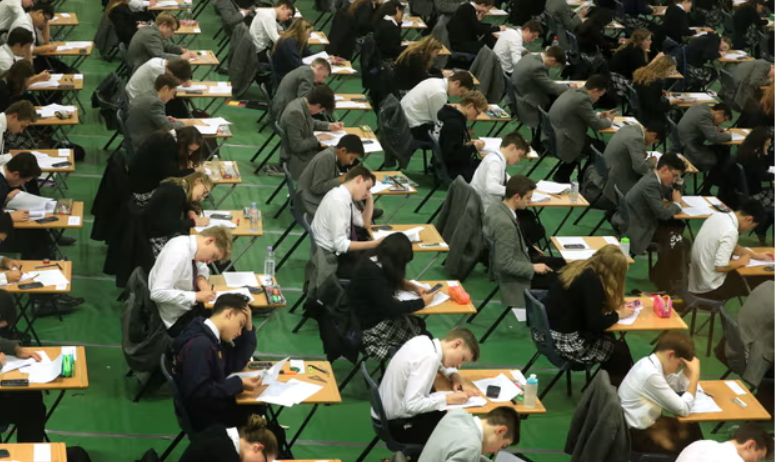
Around one in 20 training providers have been forced to close or been warned they are at risk of being shut in a crackdown on so-called ghost colleges.
One provider had not offered training or assessment since 2020, and the government said it was “calling time” on dormant providers.
The government said it would use enhanced powers to suspend high-risk education providers, with then-skills minister Brendan O’Connor saying the powers would deter “dodgy providers”.
His replacement, Andrew Giles, said the “rorts and loopholes that have plagued the VET (vocational education and training) sector for far too long” are being closed.
There are about 3,800 registered training organisations in Australia.
So-called ghost colleges, also known as “visa factories”, exploited a now-closed loophole in Australia’s visa system.
that effectively allowed international students to work instead of study. Those behind them typically attempt to recruit international students.
International students could enrol in a university course, which they could drop for a cheaper vocational course they wouldn’t attend.
Some 150 dormant providers have been closed down, the government said, while 140 have been “given a yellow card” and told to resume “quality training” by the end of the year.
More than a third of the lapsed providers had head offices in NSW, 29 per cent in Queensland and 19 per cent in Victoria.
“There is no place for anyone who seeks to undermine the sector and exploit students,” Giles said.
The crackdown comes amid criticism from universities over the federal government’s plan to cap international student numbers.
Under the proposed laws, the federal government would be able to set caps on the number of international students able to enrol in a course, which could be increased if extra accommodation is built.
The government said the changes were needed to crack down on international student exploitation by providers. The Department of Home Affairs has previously warned there had been a growth in “non-genuine students and unscrupulous providers” using the sector as a backdoor to enter Australia.
But Vicki Thomson — chief executive of the Group of Eight, which represents some of Australia’s most prestigious universities — said this archetype of unscrupulous tertiary providers didn’t apply to universities.
“Migration is shaping up as a key battlefront in the lead-up to the federal election, and the university sector is shaping up to be the fall guy, unfairly and unjustifiably so,” she said earlier this month.
In October last year, Education Minister Jason Clare announced a suite of changes designed to prevent “shonks and dodgy operators” from exploiting students for profit.
The changes included a ban on colleges paying commissions to agents who help them poach international students from colleges or universities; a fit a proper person test for college owners; and monitoring of student attendance.


